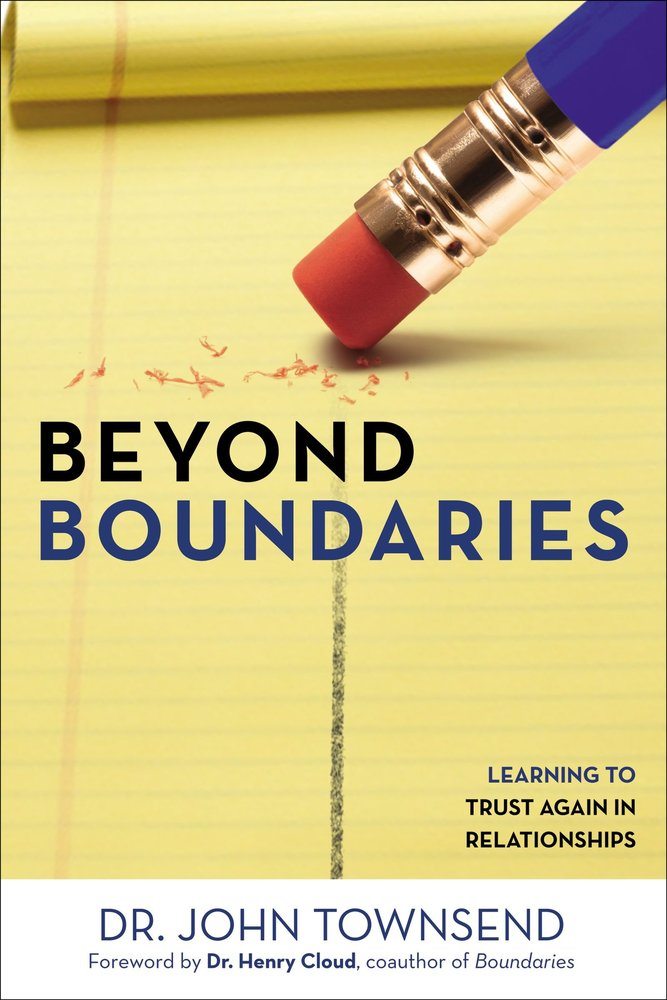Joseph: Rebuilding Trust
Rebuilding trust in a relationship can be difficult, painful, and at times, confusing. However, the rebuilding journey is worth the pain when it leads to the restoration and transformation of a relationship. For many, it is difficult to know what to expect in the rebuilding of trust. What realistic and unrealistic expectations should I have for someone who has betrayed my trust?
The life of Joseph provides us with some helpful principles to consider in the process of rebuilding trust in a relationship. The betrayal of Joseph by his brothers begins in Genesis 37. While we may not have experienced betrayal at the magnitude Joseph did, many of us have experienced the consequences which poor decisions or actions, made by ourselves or others, have had on damaging the trust in a relationship. The restoration of Joseph’s relationship with his brothers did not happen overnight. Rather, it was a process with multiple “markings” along the way.
Joseph had been in Egypt 13 years prior to his promotion as ruler of Egypt. During the seven years of plenty, Joseph traveled throughout the land gathering the surplus of food (Genesis 41:47-49). Thus, we can realistically speculate Joseph had been in Egypt around 21-22 years before his brothers came to bow down before him (Genesis 42:6). Two decades is a long time for someone to deal with betrayal and broken trust in a relationship. It also leads to an important insight for us – time alone does not change the pain of betrayal or rebuild broken trust.
Trust and Forgiveness
Before diving further into the story of Joseph, it is helpful to consider one other point. There is a distinct difference between forgiveness and rebuilding trust. Forgiveness is the releasing of a debt the offending party owes. Forgiveness may lead to the process of trust being restored as part of reconciliation, but rebuilding trust is not a prerequisite for forgiveness.
Forgiveness is what one person extends to another. Trust is earned over time, and the person who committed the offense must accept that regaining trust will occur as a continual process and journey.
Joseph may have forgiven his brothers, but as we will see, he maintained the expectation that his trust was something his brothers needed to earn and was not theirs to take.
Boundaries
Upon seeing his brothers for the first time after many years, Joseph set boundaries with his brothers (Genesis 42:7-8). He realized it was his brothers, but he hid his identity and did not expose himself or be vulnerable with them right away. Joseph remembered experiences prior to the betrayal (Genesis 42:9). It is difficult to know exactly what was going on for Joseph when he recounted previous memories, but we do know that broken trust is a significant loss in someone’s life, particularly if this happens in a close relationship. Thus, it is deeply painful and difficult to deal with. This may also mean Joseph kept his eyes on God and his involvement during this period of his life. God used Joseph to interpret dreams and Joseph experienced God’s divine presence. Joseph kept his eyes on God recognizing, while painful, forgiveness was of him.
Setting appropriate and healthy boundaries after a betrayal is the first step in rebuilding trust. Whether or not someone is clear and consistent in boundary setting and respects the boundaries of others determines if they are ready to receive your trust. Joseph could have extended his trust immediately to his brothers upon meeting them for the first time by exposing himself and revealing who he was. However, this would have been unwise, as he did not know if his brothers were in a position to receive his trust.
Reliable
In Genesis 42:15, Joseph asked his brothers to bring Benjamin to Egypt. There may be a number of reasons for Joseph’s request, as the text says, “Hereby shall ye be proved.” Bringing back Benjamin would not only prove their word was true (they actually have a brother Benjamin) but also prove they could follow through on what was asked. Reliability is doing what you say you are going to do, consistently. Someone who is reliable is someone worthy of your trust.
Accountable
Upon Joseph’s request to bring Benjamin to Egypt, we see the heart of Joseph’s brothers. This is a conversation between Joseph’s brothers, which the brothers were unaware Joseph could hear:
Genesis 42:21-22 “And they said one to another, We are verily guilty concerning our brother (Joseph), in that we saw the anguish of his soul, when he besought us, and we would not hear; therefore is this distress come upon us. And Reuben answered them, saying, Spake I not unto you, saying, Do not sin against the child; and ye would not hear? therefore, behold, also his blood is required.”
God uses Joseph’s question to bring about the reality of their own sin. This conversation reveals to Joseph that his brothers did acknowledge their sin and recognize it was wrong. Someone who is trustworthy will admit their mistakes, take responsibility and be accountable for their offence. They show a repentant heart and godly sorrow for what they did wrong and do not make excuses for their sin.
Confidence
As the story continues, the brothers return to Canaan. They recount the entire series of events to their father in a concerning manner. The brothers report back the truth of what happened. This is a noticeable detail. Scripture does not say anything about Joseph’s brothers talking about him in a negative or critical way or gossiping to others about what happened. Individuals are worthy of our trust when respect is shared and held in confidence.
Integrity
Jacob initially responds with a “no” to the request to take Benjamin back to Egypt. However, as the days go by, the food soon runs low and the family is faced with a difficult decision. Jacob ultimately allows Benjamin to go with his brothers to Egypt. In the process of making this decision, the repentant hearts of Reuben and Judah are revealed. Reuben is willing to give his two sons (Genesis 42:37) and Judah is willing to give his life (Genesis 43:8-9) if Benjamin does not return to Canaan safely. Later in the story (Genesis 43:21-22) Scripture states where Joseph’s brothers show integrity by sharing the money that showed up in their sacks and not hiding it. Individuals worthy of our trust act from a place of integrity; they choose courage over comfort and what is right over what is fast or easy.
Upon seeing Benjamin (Genesis 43:16), Joseph realizes his brothers have now respected his boundaries, taken responsibility, and have been accountable for the offences which were previously directed at him (Genesis 42:21-22). Bringing Benjamin back also showed that his brothers were reliable. However, Joseph continues to “prove” his brothers before feeling safe enough to reveal his identity to his brothers. While Joseph had forgiven his brothers, he still did not rush to give his brothers his trust. Rather, Joseph was patient and waited for his brothers to earn his trust over time.
Consistency over Time
The story continues with some other testing Joseph had for his brothers. In Genesis 43:34 Joseph tests his brothers by giving Benjamin five times the portion of meal than his bothers had, even though Benjamin was the youngest brother. We are not told about the physical stature of Joseph’s brothers, but it is likely safe to assume the larger portion given to Benjamin was not because he ate more. Joseph then challenges his brothers by placing his silver cup in Benjamin’s sack (Genesis 44:2). Joseph’s brothers respond to the cup found in Benjamin’s sack by renting their clothes (Genesis 44:13). In addition, Judah was willing to suffer wrong for what appeared to be the mistake of someone else (Genesis 44:16). Judah was willing to commit to all the brothers being slaves in Egypt, not just Benjamin. Judah’s devoted heart is once again revealed as Scripture recounts the pain of Jacob, and Judah pleads with Joseph to let him take Benjamin’s place in order to save Jacob from ultimately dying (Genesis 44:18-33).
Conclusion
Restoration and reconciliation in a relationship is a wonderful thing. Joseph himself weeps so loudly upon revealing himself that the Egyptians and the household of Pharaoh hear (Genesis 45:2). We see Joseph’s heart and his longing to have a close and restored relationship with his brothers. This story also reminds us that rebuilding trust is a process requiring patience and clear “markings” along the way. Joseph was patient, not rushing to give his brothers responsibility they were not ready to take. Finally, Joseph’s decision to restore trust was guided by the following principles, which are helpful for us to consider in our own relationships.
Principles for Restored Trust:
• Boundaries – are boundaries in my relationships clear and respected?
• Reliability – does the person repeatedly do what they say they are going to do?
• Accountability – is the person willing to own their mistakes, apologize, and make amends?
• Confidence – does the person hold in confidence what is shared with them and refrain from gossiping about others?
• Integrity – does the person choose to act from a place of integrity and practice, not just profess, their values?
For Further Information
Rebuilding Trust Podcast Episodes One of the hard realities of relationships is that love and hurt are bundled together. The vulnerability that relationship requires makes disappointment possible, even likely. Getting back up after disappointment and repairing trust is required for relationship maintenance. In this episode Kaleb Beyer and Arlan Miller provide a helpful template for restoring trust.
 Worthy of Her Trust: What You Need to Do to Rebuild Sexual Integrity and Win Her Back
Worthy of Her Trust: What You Need to Do to Rebuild Sexual Integrity and Win Her Back
Authors: Stephen Arterburn & Jason B. Martinkus
Few challenges in life are as difficult as regaining a wife’s trust—and few are as ultimately worthwhile. Written primarily for men who have fallen into sexual sin, this book speaks to the issue of rebuilding trust in a marriage. It is filled with exercises and tools rooted in counseling principles, as well insights from the wife’s perspective.
 Beyond Boundaries:
Beyond Boundaries:
Authors: John Townsend and Dr. Henry Cloud
How do you know you’re ready to trust again … and what does it take to be ready? Painful relationships violate our trust, causing us to close our hearts. But to experience the freedom and love God designed us for, we eventually have to take another risk. In this breakthrough book, bestselling author Dr. John Townsend takes you beyond the pain of the past to discover how to re-enter a life of intimate relationships. Whether you’re trying to restore a current relationship or begin a new one, Townsend gives practical tools for establishing trust and finding the intimacy you long for.





Comments
Leave a Comment